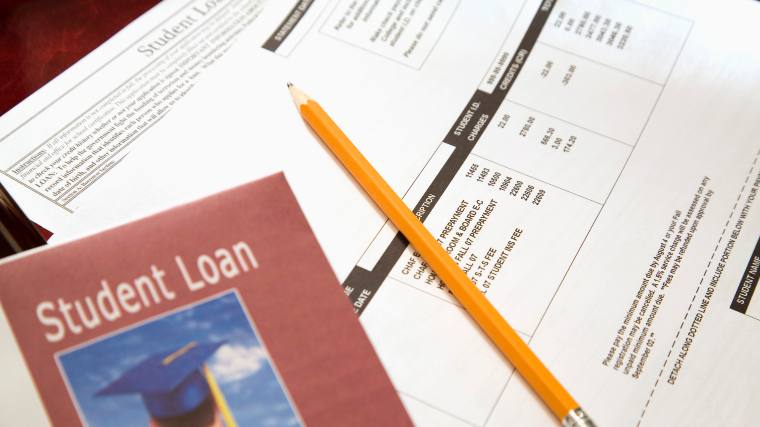Across the country and around the world, people are experiencing financial hardship, as the far-reaching consequences of COVID-19 lead to layoffs, furloughs, salary reductions, and lost opportunities.
These are especially stressful times for those with debt payments that continue to pile up even as the economy stalls. Fortunately, for the 5.2 million people paying on student loans, there is help and hope for a positive outcome. The CARES Act, one of several federal stimulus packages intended to steady the economy and support workers, offers relief for students and student loan borrowers.
Here are some of the key resources available under this new legislation.
HOW THE CARES ACT IMPACTS STUDENT LOANS
The CARES Act provides financial relief for federal student loan borrowers, including those with Direct, Direct PLUS, Direct Consolidation loans and FFEL or Perkins loans owned by the Department of Education. Notably, the CARES Act applies to all federal student loans, even those in default, which means that struggling borrowers at every stage can benefit from the student loan provisions of the CARES Act.
Borrowers with federal student loans receive an automatic administrative forbearance on loan payments from March 13, 2020 through September 30, 2020. This means that during this time, borrowers are not required to make payments, and auto-draft will be disabled. Additionally, the interest rate during this time is 0%, meaning interest will not accrue while payments are in forbearance.
FFEL Program loans owned by commercial lenders and Perkins Loans owned by academic institutions do not qualify under the CARES Act. However, borrowers have the option of consolidating these loans into a Direct Consolidation Loan, which would then be eligible for the forbearance. Perkins loans held by universities may also be eligible for a 90-day deferment, and borrowers should contact their schools for specific details.
Private student loans are not eligible, and private loan borrowers should review their loan agreement and contact their servicer to inquire about hardship options such as deferment, forbearance, or loan modification.
DEFAULTED BORROWERS HAVE MAJOR OPPORTUNITY
One of the biggest boons of this program is the benefit to those in student loan default. During the forbearance period, administrative wage garnishment, tax refund offsets, and Social Security benefit offsets will be suspended, and the stimulus check will not be subject to offset either.
Loan rehabilitation is often the path out of default. Typically, a defaulted borrower makes a reasonable payment arrangement with their servicer, which can be for as low as $5 a month in some circumstances. After making the arrangement, the borrower pays nine monthly voluntary payments, and the loan will be removed from default. Under the CARES act, the months of forbearance where borrowers make zero dollar payments will count towards the rehabilitation payments, and interest does not accrue during the forbearance.
This is one of the best opportunities ever presented for defaulted borrowers to get on the path to clearing their default. If you have defaulted student loans, don’t wait! Contact your servicer today about entering a rehabilitation program.
A CHANCE TO ESTABLISH SAVINGS
For student loan borrowers experiencing income disruption, this period of administrative forbearance can provide financial flexibility, allowing them to prioritize things like mortgage or rent, groceries, utilities, child care, and other essentials. Consumers can allocate the money that would otherwise go to student loan payments towards priority expenses.
Borrowers can also contact their other creditors to inquire about hardship plans or deferments on credit cards and mortgages in order to allocate available income or savings to the most pressing needs. Ultimately, everyone benefits when borrowers have the resources they need to fulfill their obligations and lenders want to make their customers’ long-term success possible.
For those who are not experiencing financial hardship, the administrative forbearance period is a great time to allocate money towards establishing or increasing a $1,000 emergency savings account, and afterward to pay down student loan principal. If a borrower makes a manual student loan payment, the entire amount will be allocated to paying down principal after paying any accrued interest prior to March 13, 2020. This is a great way to accelerate student loan payoff, save on interest, and decrease the total amount repaid.
For those enrolled in Public Service Loan Forgiveness (PSLF), the administrative forbearance period will count towards their 120 qualifying payments as long as they remain employed full time for a qualified employer and are on a qualified repayment plan. In that case, it may not make sense for a borrower to pay additional principal payments on their student loans, and instead those borrowers can benefit from contributing towards emergency savings and paying down other consumer debts.
ACCESSING HEERF GRANT OPPORTUNITIES
Another provision of the CARES Act provides a grant opportunity for currently enrolled students, whether they are student loan borrowers or not. Eligible students who incurred expenses related to the COVID-19 disruption of campus operations may be eligible for a grant through the Higher Education Emergency Relief Fund (HEERF) – Student Share.
These grants will be distributed through universities’ financial aid offices, so students should look for information from their university or contact the financial aid office to apply. Eligible expenses include those related to cost of attendance such as food, housing, course materials, technology, health care, and childcare. This is a grant, not a loan, meaning students will not need to pay back any money granted for qualified reasons.
TAKE ACTION ASAP
For more information, borrowers can visit the Department of Education website for a comprehensive list of resources. If you need help with your credit card debt or mortgage, contact our certified experts anytime. We provide access to trained financial counselors who have the insights necessary to help you improve your financial picture.
[“source=moneymanagement”]




